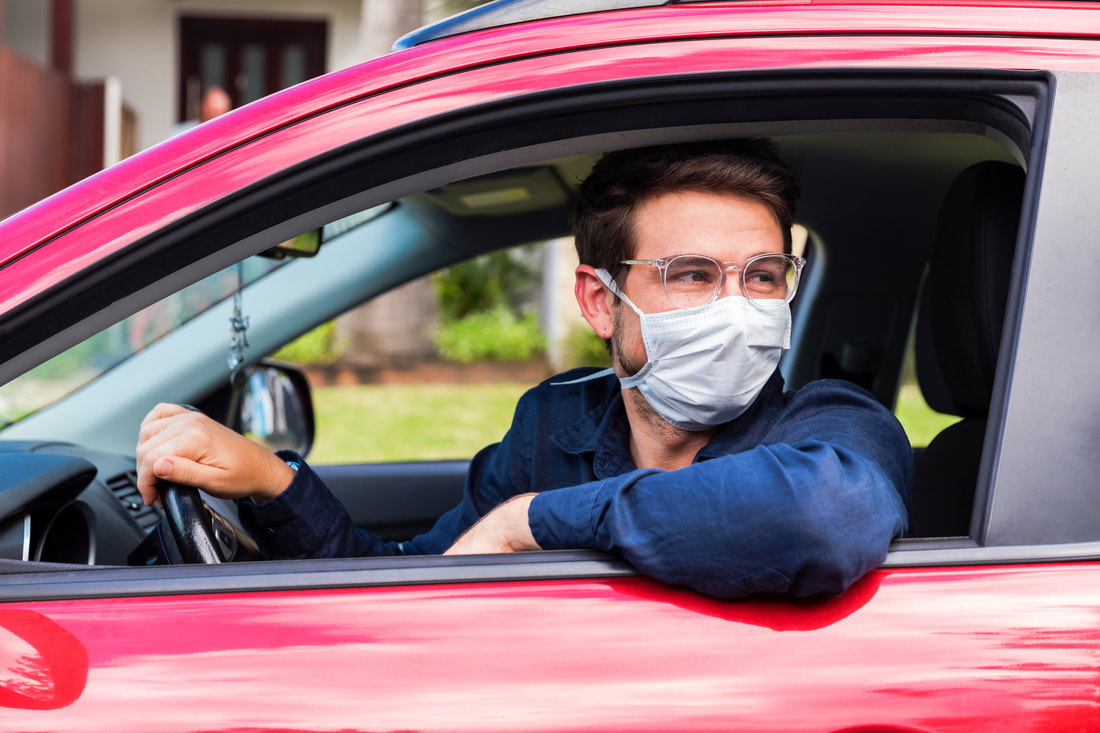|
Legal Dive quoted Lauren Teukolsky last week in an article discussing the Department of Labor’s (DOL) new independent contractor rule. The long-awaited rule was released on January 9th and replaces the DOL’s Trump-era guidance as to employee and independent contractor classification.
The issue of classification has become especially important over the past five to ten years as the American “gig economy” has taken off. With the rise of companies such as Uber and DoorDash, more employers are utilizing workforces that consist of independent contractors. From employers’ perspectives, the development is positive, as it allows them to avoid expenses associated with employees, such as worker’s comp insurance. For employees, however, failure by their employers to properly classify them as employees frequently means a denial of basic workplace rights such as minimum wage, overtime, and paid leave. The DOL’s new rule seeks to reduce the risk that employees are misclassified as independent contractors by instituting provisions it believes are more consistent with judicial precedent than those previously put in place during the Trump administration. Legal Dive’s article begins with commentary from Ms. Teukolsky on how corporations may need to navigate the new rule, which is set to go into effect on March 11: “’You need to assume that most of your workers are employees, unless it’s pretty clear that they’re not, and not the other way around,’ said Lauren Teukolsky, who represents workers at Teukolsky Law. ‘It’s definitely the safest course.’” Ms. Teukolsky also commented that the Trump-era rule deviated from longstanding employment-law principles, and the DOL’s new rule represents a return to the well-established legal principles that existed for decades. To read Legal Dive’s article in its entirety, click here. To learn more about Ms. Teukolsky and Teukolsky Law, click here.
0 Comments
Lauren Teukolsky was quoted in a Thursday Law360 article on California’s newest U.S. senator, Laphonza Butler. Butler was appointed by Governor Gavin Newsom and sworn in earlier this month to fill the seat of Dianne Feinstein, who passed away after representing California on Capitol Hill for over three decades. The Law 360 article discusses Senator Butler’s background, and her mixed experience regarding workers’ rights.
Butler’s greatest achievement for California’s workers came during her time as president of SEIU (Service Employees International Union) Local 2015, where she helped with the “fight for $15,” a movement that led to 2016 California legislation that eventually increased the state’s minimum wage to $15 an hour. Afterwards, however, Butler joined the private sector and worked for Uber, a company that has gone to great lengths to avoid having to classify its drivers as employees. The corporate background has led to some concerns regarding Butler’s commitment to workers. In Law360’s article, Ms. Teukolsky expressed cautious optimism about Butler: “’Her time working in corporate America was relatively brief, if you look at the entirety of her career,’ Teukolsky said. ‘She does seem to be progressive and have workers' rights at the forefront, and hopefully whatever time she spent working for Uber was an aberration or a blip.’” To read the Law360 article in its entirety, click here. To learn more about Lauren Teukolsky and Teukolsky Law, click here.  Last week, the National Labor Relations Board (NLRB) alleged in a complaint that the University of Southern California (USC), the Pac-12, and the National Collegiate Athletics Associations (NCAA) are joint employers and willfully misclassify their football players, men’s basketball players, and women’s basketball players as “non-employee student athletes” to discourage them from engaging in protected activities such as unionization. The complaint calls for USC, the Pac-12, and the NCAA to reclassify those athletes as “employees” in their handbooks and rules. The employment-status of college athletes is the most pressing issue facing the world of college sports and threatens to upend the foundation of the multibillion-dollar industry. For decades, the NCAA has argued that amateurism - a model in which college athletes get 0% of the revenue generated by their sports – was necessary to maintain the value and integrity of college athletics. However, as coaching salaries have ballooned and TV deals for college sports approach nearly $10 billion, the amateurism model is increasingly seen as exploitative and has come under increasing scrutiny, leading some experts to expect the model to collapse under mounting pressure in federal courts and state legislatures. If the NCAA’s amateurism model were to collapse, whether due to the aforementioned pressures or NLRB complaints, the repercussions would be monumental, prompting questions of how to compensate over 500,000 NCAA athletes, 85% of which live below the poverty line. According to the NLRB’s complaint, a hearing on their case is scheduled for November 7, 2023, in Los Angeles.  Law360 quoted Lauren Teukolsky in a February 28 article on the recent nomination of Julie Su to be the next Secretary of Labor. Su has served as Deputy Labor Secretary since 2021, helping oversee the Department of Labor. Before that, Su was head of California’s Labor and Workforce Development Agency and was considered a Labor Secretary candidate, though President Biden ultimately nominated Boston Mayor Marty Walsh for the position. Walsh is leaving to head the National Hockey League’s players’ union. Under Walsh, the Labor Department supported organized labor and workers through a series of regulatory and legislative actions. If confirmed by the U.S. Senate, Su is expected to continue the Department’s pro-union and pro-worker stance while also stepping up federal enforcement in the areas of worker classification, independent contractor status, and wage and hour issues. Su is President Biden’s first Asian American cabinet secretary. Worker attorneys and workers’ advocates have voiced near unanimous support for Su’s nomination. Law360’s article reads as follows: “Lauren Teukolsky of California-based Teukolsky Law said she has known Su since at least 1998, when Teukolsky was a law student and Su was litigation director of the group now known as Asian Americans Advancing Justice Southern California. At the time, the two of them worked on California's Assembly Bill 633, which implemented wage protections for garment workers. ‘Julie's idea was to extend liability for the wages beyond the contractor, beyond the direct employer, to bigger companies that were higher up the food chain, including garment manufacturers and even, in some instances, garment retailers,’ Teukolsky said. ‘It really demonstrates how she is able to think creatively about a labor enforcement problem in a way that other advocates haven't necessarily thought of before,’ Teukolsky said. ‘She just has this ability to problem-solve and use a mix of legislation, advocacy, court rulings, advocacy in the courtroom, just to use all of these different tools as problem-solver.’” Teukolsky Law congratulates Julie Su on her historic nomination. To learn more, click here to read the Law360 article in its entirety. As Prop 22 goes into effect in California, workers and unions are already fighting back against the measure, which was largely propped up by tech giants’ $200 million “Yes on 22” campaign.
Several drivers and SEIU filed a petition in California Supreme Court on January 12, 2021 seeking to overturn the new ballot measure, which aims to permanently classify gig workers as independent contractors instead of employees. The drivers and union allege that Prop 22 violates California’s constitution and are asking the Court to invalidate the new law, arguing that Prop 22 makes it too difficult for state legislators to implement workers’ compensation. On February 3, the Court declined to hear the suit 5-2. However, the Court said the case could be refiled in a lower court. On February 11, the drivers and union filed a similar suit in Alameda County Superior Court. Prop 22’s destructive effects are being felt by workers statewide. The Knock LA reported last month that Vons, Pavilions, and other stores owned by Albertsons Companies in California plan to fire grocery delivery drivers later this month and will shift to a third-party delivery service that uses independent contractors. Drivers working for Albertsons Companies are currently classified as employees; the company’s Bay Area drivers are unionized and will not be affected by the change, but delivery drivers in Southern California not protected by a union lack the power to fight back against this move by the grocery stores. If you believe you have been misclassified as an independent contractor instead of an employee, contact Teukolsky Law today for a free consultation. One of the propositions on the ballot on November 3, Proposition 22, could have major implications for the future of AB 5 enforcement in California. If passed, the proposition would allow gig-economy companies like Uber, Lyft, and Instacart to classify their drivers as independent contractors instead of employees. These companies would be exempt from AB5, the new California law that requires most employers to classify their workers as employees. Courts have consistently ruled that Uber and Lyft have violated AB5 by refusing to reclassify their drivers as employees since AB5 went into effect on January 1, 2020. As recently as October 22, 2020, a California appeals court ruled that Uber and Lyft must reclassify their drivers as employees rather than independent contractors.
If Prop. 22 passes, Uber and Lyft would not need to comply with these court rulings. As independent contractors, their drivers would not receive many of the benefits and protections of the employment relationship, like minimum wage protections, paid sick leave, workers' compensation benefits if they are injured or unemployment benefits in they become unemployed. Backers of Prop. 22, including Uber, Lyft, Instacart, Postmates (owned by Uber) and DoorDash, have poured more than $187.5 million into backing the bill, making it the most expensive proposition in California history and dwarfing the $15 million raised by the opposition, spearheaded by labor groups who have traditionally represented the interests of working people over corporate interests. Prop. 22 would not only apply to Lyft and Uber drivers, but would cover all drivers who work for a "delivery network company," potentially including FedEx, Amazon, Walmart, UPS, and any other companies that makes deliveries in California. If passed, Prop. 22 would set a dangerous precedent in California. Companies who don't like laws that the Legislature passes, and who don't like court rulings requiring them to treat their workers fairly, could simply open their coffers -- filled with the profits they earn by not spending money on employee benefits -- and buy themselves a ballot proposition. Significantly, Prop. 22 contains a provision stating that it cannot be amended except by a 7/8 majority of the Legislature, effectively tying lawmakers' hands for the rest of eternity absent a new ballot proposition. California voters should reject this company-sponsored initiative and let the California Legislature do its job to govern in the interests of the people. If you think you have been misclassified as an independent contractor, contact Teukolsky Law today for a free consultation. A federal judge has ruled that Uber and Postmates failed to demonstrate that they were unconstitutionally targeted by AB 5, the new law that requires most California workers to be classified as employees rather than independent contractors.
The lawsuit, Lydia Olson et al v. State of California et al, alleged that AB 5 violated the equal protection clause because it targeted workers of app-based companies like Uber and Postmates, while exempting numerous other types of workers like hairdressers and real estate agents. In her ruling, issued September 18, 2020, U.S. District Judge Dolly M. Gee rejected this claim, finding that lawmakers were attempting to address the rampant misclassification of employees and to ensure that workers received the "basic rights and protections they deserve under the law, the attendant problems, such as a lack paid sick leave, including a minimum wage, workers’ compensation if they are injured on the job, unemployment insurance, paid sick leave, and paid family leave." Judge Gee ruled that Uber and Postmates did not prove that app-based companies were targeted because of animus, reasoning that AB5 maintains the traditional exemption of workers who have long been considered independent contractors under California law. Earlier this month, the California Legislature revised AB 5 to exempt several more businesses from the classification test and to increase the state’s ability to enforce the law. Meanwhile, Uber, Lyft and other app-based companies have poured millions of dollars into Prop 22, a measure on the November ballot that would exempt their drivers from AB5 and classify them as independent contractors. If you believe you have been misclassified as an independent contractor instead of an employee, contact Teukolsky Law today for a free consultation. |
AuthorLauren Teukolsky is the founder and owner of Teukolsky Law, A Professional Corporation. Archives
June 2024
Categories
All
|
Teukolsky Law, A Professional Corporation, represents clients throughout California. Ms. Teukolsky is admitted to practice in the State of California, as well as the United States Supreme Court, Ninth Circuit Court of Appeals, Northern District of California and Central District of California. Disclaimer.
Copyright © 2017
Copyright © 2017


 RSS Feed
RSS Feed